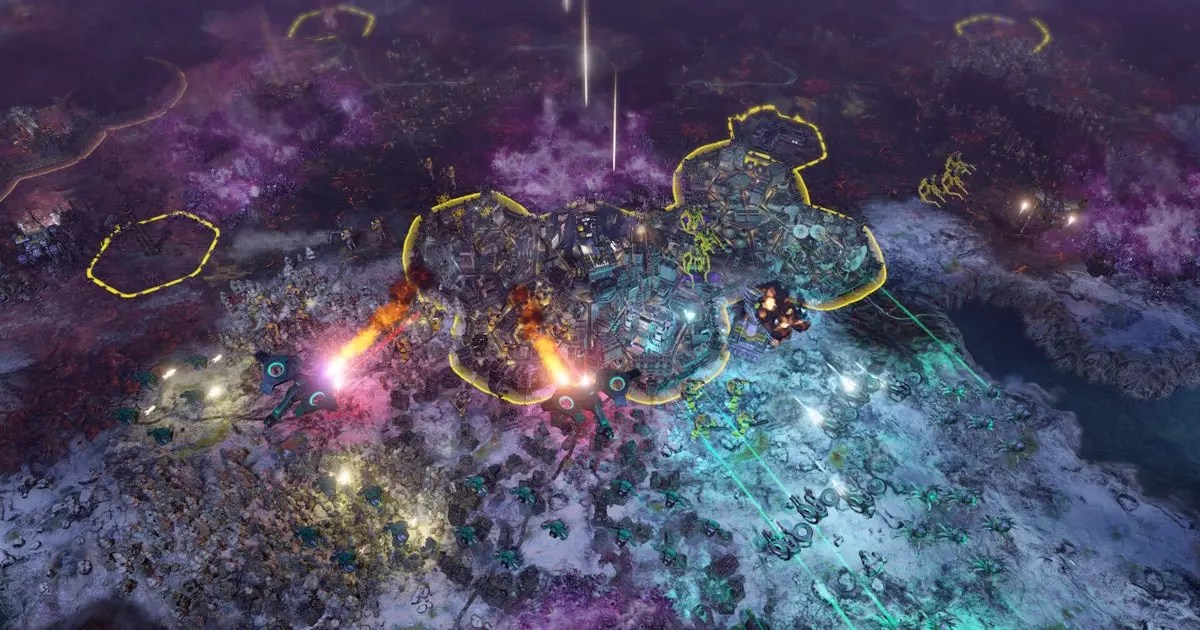The world of gaming has continuously evolved, pushing the boundaries of imagination and interactivity to places both familiar and uncharted. Among the plethora of strategies that have emerged, Proxy Studios has introduced their latest offering, Zephon—a fresh entry into the 4X genre that dares players to navigate a treacherous, desolate world wrought with chaos and uncertainty. With its hexagonal maps and its marriage of magical and cyberpunk themes, Zephon stands as a thought-provoking exploration of survival and conflict in a realm that is as disconcerting as it is intriguing.
Zephon’s narrative unfolds in a grim manifestation of a post-apocalyptic landscape, where humanity grapples with remnants of its past amidst new monstrous creations born from cataclysmic events. The environment is strikingly grotesque, with mutated flora and fauna that serve both as hazards and resources to players. The developers have introduced a variety of mechanics that engender engagement: the ability to control a diverse cast of over 50 unique units, along with more than 150 technologies to research, provides ample opportunity for varied gameplay experiences.
Moreover, the game’s setting offers players the chance to define their civilization’s trajectory. Should they lean into the esoteric and channel dark forces, or embrace advanced technology with customizable robotic armies? This dichotomy enriches the gaming experience by allowing players to craft their style of play rather than conform to a singular path. The complex choices players face not only influence gameplay but also serve to reinforce the overarching narrative of survival against a backdrop of overwhelming odds.
In Zephon, the aesthetic choices contribute significantly to its identity. The visuals are steeped in decay, enveloping players in a world where the ruins of civilization juxtapose fantastical elements. Flesh trees and towering giants reminiscent of Evangelion units intensify the sense of otherworldliness. The inclusion of “otherworldly hymns of decay” enhances the immersive experience, creating an atmosphere that is chilling yet captivating.
This plot-induced tension, however, raises important questions about the tone of the game. The upbeat dialogue of units, while perhaps intended to maintain player engagement, can feel discordant with the grim realities of their environment. It’s a peculiar choice that might leave players bemused—how can characters sound jovial when facing such dire threats? Intentional or not, it may erode some desired immersion, causing a conflict between what players see and how characters react.
One of the game’s key selling points is its promise of a deep, multifaceted experience that transcends mere combat. With elements of city management, diplomatic maneuvering, and branching narrative quests, players are beckoned to strategically weigh their options. This is where Zephon distinguishes itself from its contemporaries, offering a deeper layer of strategy than what might be readily apparent.
Yet, the absence of robust diplomatic mechanics has been a notable point of contention, particularly for seasoned strategy enthusiasts who often seek rich interactions with their game-world counterparts. Although Zephon does weave narrative and decision-making into the player’s experience, it doesn’t appear to fully harness the potential for diplomacy. This diminutive approach can potentially limit the richness of in-game relationships and storytelling, an aspect that many players might have hoped to explore further.
In sum, Zephon presents an engaging foray into post-apocalyptic strategy gaming that marries rich lore with complex mechanics. The vivid world invites players to dive into its chaotic embrace, testing their strategic mettle and prompting ethical considerations about technology, power, and survival. Despite its intriguing premise and immersive atmosphere, it is not without its flaws, particularly concerning tone inconsistency and a lack of diplomatic depth. As players venture into the rubble-strewn wilderness of Zephon, they will uncover both rich experiences and potential pitfalls, marking this title as a noteworthy yet imperfect addition to the 4X genre. The balance between combat, exploration, and city-building presents a tantalizing challenge that, while compelling, calls for refinement in future expansions or sequels.


Leave a Reply